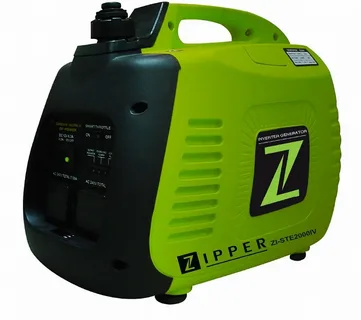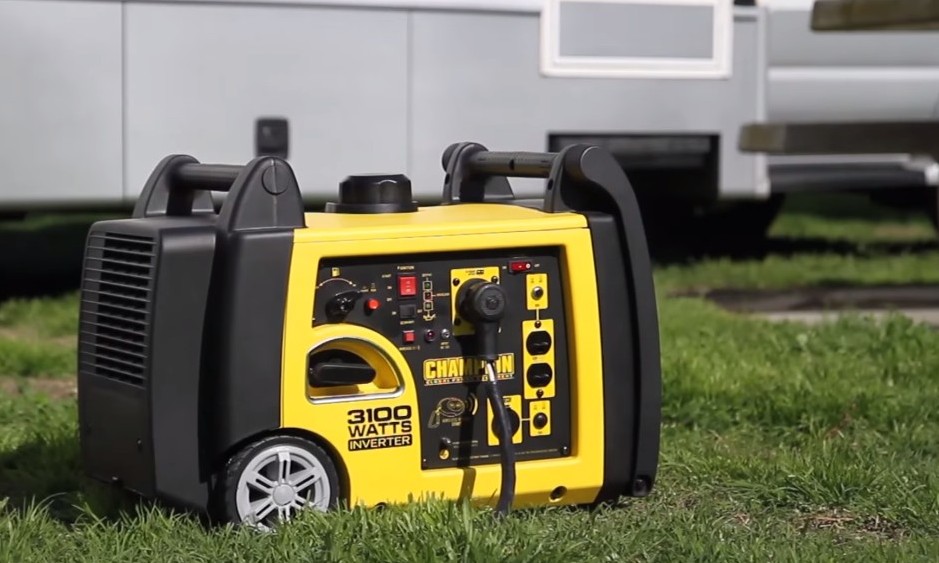When it comes to ensuring an uninterrupted power supply, generators are one of the most reliable options available. Whether you run a small business or want to prepare your property for a power outage, generators Brisbane offers the ideal solution. However, in recent years, there has been a growing trend of using batteries as an alternative power source. So, how do generators compare to batteries when it comes to powering your property? In this blog post, we’ll explore the pros and cons of both options, so you can make an informed decision.
What is a Generator?
Generators are essential equipment that can provide electricity when there is a power outage or when there is no electricity grid in a particular area. A generator works by converting mechanical energy into electrical energy through a process called electromagnetic induction. This process uses a coil and a magnet to generate electrical power. A generator can provide temporary power to your home or business, and it is ideal for use during a blackout or when there is no grid power available. Generators come in different sizes and types, from small portable generators to large industrial generators. The size of the generator you need will depend on the amount of power you require. Portable generators are usually small and can provide power for a few hours, while larger generators can provide power for several days. Industrial generators, on the other hand, can provide power for entire buildings and are designed for continuous use. Generators are typically powered by fuel, such as diesel, propane, or gasoline. They require regular maintenance to ensure they operate correctly, including oil changes, fuel filter replacements, and air filter changes.
What are the Different Types of Generators?
Generators are a vital investment for homeowners, businesses, and individuals who live in areas with unreliable power supplies. There are different types of generators, each with its advantages and disadvantages. In this section, we will discuss the various types of generators.
 Portable Generators:
Portable Generators:
Portable generators are the most common type of generator available in the market. They come in various sizes and can provide power from 500 watts to 17,500 watts. They are ideal for outdoor events, camping, and tailgating, and also provide power backup for homes and small businesses.
- Inverter Generators:
Inverter generators are similar to portable generators but are more energy-efficient and provide stable power output. They are perfect for powering sensitive electronic devices like laptops, smartphones, and medical equipment.
- Standby Generators:
Standby generators are permanent fixtures installed outside homes and businesses. They provide power backup during power outages and can switch on automatically when there is a power cut. They are more expensive than portable generators and require professional installation.
- Solar-Powered Generators:
Solar-powered generators are eco-friendly generators that use solar energy to generate electricity. They are suitable for outdoor activities, camping, and emergency backup power supply. They are easy to operate and have no emissions.
- Dual Fuel Generators:
Dual fuel generators are capable of running on both gasoline and propane. They provide backup power during power outages and are also ideal for outdoor activities.
Each type of generator has its benefits and drawbacks, and it’s essential to select one that suits your needs. Understanding the differences between them will help you choose the right generator for your home or business.
What are the Pros of Generators?
When it comes to powering your property, generators offer a range of benefits that cannot be matched by batteries. Here are some of the key pros of using generators in Brisbane:
- Continuous power supply: Unlike batteries, generators can provide a continuous source of power for an extended period. This is particularly useful in areas that are prone to power outages, or in situations where you need to run multiple appliances at once.
- Portable and versatile: Generators come in a variety of sizes and types, making them a versatile option for both home and business owners. Portable generators are easy to move around and can be used for a range of activities including camping, outdoor events, and construction sites.
- Low maintenance: Generators are generally low-maintenance, and require minimal upkeep to keep them in good working order. As long as you follow the manufacturer’s instructions for maintenance and storage, your generator should last for many years.
- Increased property value: Installing a generator can increase the value of your property, particularly if you live in an area that is prone to natural disasters or power outages.
- Peace of mind: Perhaps the most significant advantage of generators is the peace of mind they provide. Knowing that you have a reliable backup power source can be a huge relief in times of crisis or emergency.
Overall, generators are a reliable and versatile option for powering your property in Brisbane. While batteries may be useful in certain situations, generators offer a range of benefits that make them a better choice for most home and business owners.
Which is better for your property – a generator or batteries?
This is a question that many property owners ask themselves when looking for backup power solutions. The answer is not always straightforward as it depends on various factors such as your power needs, budget, and personal preferences. Generators are the traditional option for backup power and good reason. They are reliable and can provide power to your property during power outages. They can also be used in remote locations where electricity is not available. Generators are available in different types such as diesel, propane, and natural gas generators. On the other hand, batteries are a more modern option and are gaining popularity among property owners. Batteries can be charged during times of low demand and used during peak times. They are silent, clean, and efficient, making them a great option for those who want to reduce their carbon footprint. So which one is better for your property? The answer depends on what you want to use the backup power for. If you need power for your entire property, then a generator may be the better option as it can provide power for longer periods. If you only need to power essential appliances like your refrigerator, then batteries may be the better option. Budget is also a consideration. Generators are more expensive upfront, but they can last for many years and require less maintenance compared to batteries, which need to be replaced every few years. Personal preference also plays a role in the decision-making process. Some people prefer the traditional backup power solution that generators offer, while others prefer the modern and eco-friendly option that batteries provide.
How to Choose the Right Generator or Battery?
Choosing the right generator or battery for your property depends on various factors, such as power requirements, usage, and budget. Here are some tips to help you make an informed decision:
- Determine your power needs: The first step is to determine your power needs based on the appliances and devices you want to power during an outage. Make a list of essential and non-essential items, and calculate their power consumption.
- Consider the fuel type: Generators can run on various fuel types, such as gasoline, propane, or diesel. Consider the availability, cost, and safety of the fuel type in your area. Batteries, on the other hand, rely on electricity and may require a solar panel or wind turbine to recharge.
- Decide on the type and size: Depending on your power needs, you can choose between portable, standby, or inverter generators. Similarly, you can choose the size of the generator or battery based on the power output and runtime.
- Check the features: Look for features such as noise level, portability, fuel efficiency, and safety features like overload protection, low oil shutdown, and voltage regulation. Some generators also offer remote start and Wi-Fi connectivity.
- Compare the cost and maintenance: Generators and batteries vary in cost and maintenance requirements. Consider the upfront cost, fuel or electricity costs, and any ongoing maintenance costs, such as oil changes, spark plug replacements, or battery replacements.b Ultimately, the right choice between generators Brisbane and batteries depends on your specific needs, preferences, and budget. It’s always best to consult a professional generator installation service to help you make the right choice for your property.
Conclusion
After weighing the pros and cons of generators and batteries, it’s clear that both have their advantages and disadvantages. Ultimately, the choice between the two will depend on your specific needs and circumstances. If you require backup power for extended periods or have high power requirements, a generator may be the better option. However, if you prioritize portability, low maintenance, and eco-friendliness, batteries may be the way to go. Regardless of your choice, it’s important to carefully consider your options and select a reputable supplier to ensure that you’re getting a quality product that meets your needs. With the right equipment and proper maintenance, you can ensure that you have a reliable backup power source in the event of an outage or emergency. So whether you choose a generator or batteries, make sure to invest in a solution that provides peace of mind and keeps your property powered up and running smoothly.
| Other Good Articles to Read |
| Blogs Rain |
| Cme Blog Spot |
| Garcias Blogs |
| Yyc Blogs |
| Guiade Blogs |
| Blogs-Hunt |
| Impact-Blog |
| Smarty Blogs |
| Ed Blog |
| Mo Blogs |
| Blogs T |



